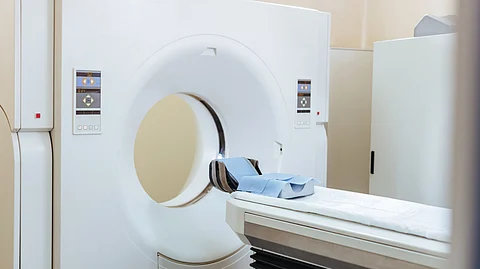In a fatal accident that has sent shockwaves through the medical community, a 61-year-old man from Long Island, New York, died after getting sucked into an MRI (Magnetic Resonance Imaging) machine.
The incident occurred on Wednesday, July 16, at Nassau County Open MRI Center in Westbury, as confirmed by New York Police.
Alleged Sequence of Events
According to reports, the man, whose details have not been revealed by police, had visited the center with his relative for the latter’s MRI scan.
While waiting outside the scanning room, he suddenly heard his relative screaming in pain. Concerned, he entered the treatment room, defying the orders to stay out while the scan was in progress.
Wearing a metallic chain around his neck, he was immediately pulled into the MRI machine, triggering a serious medical emergency.
Alarmed by the unfolding scene, the medical staff immediately called 911. Emergency responders from the Nassau County Police and paramedics arrived at the facility around 4:30 pm, launching a coordinated medical and safety response.


